The Ministry of the Environment on the measure halting mining in southwestern Antioquia: 'We're not stopping companies, we're protecting water.'

The National Government, through the Ministry of the Environment and headed by Minister Lena Estrada Añokazi, declared a new Temporary Reserve Zone (TRZ) in southwestern Antioquia in June of this year. This measure suspends all mining or extractive activity in the region for three years while environmental impact studies are conducted, particularly those related to water resources. This is the second TTZ decreed during the current administration, following the one created in the Santurbán moorland in March of this year.
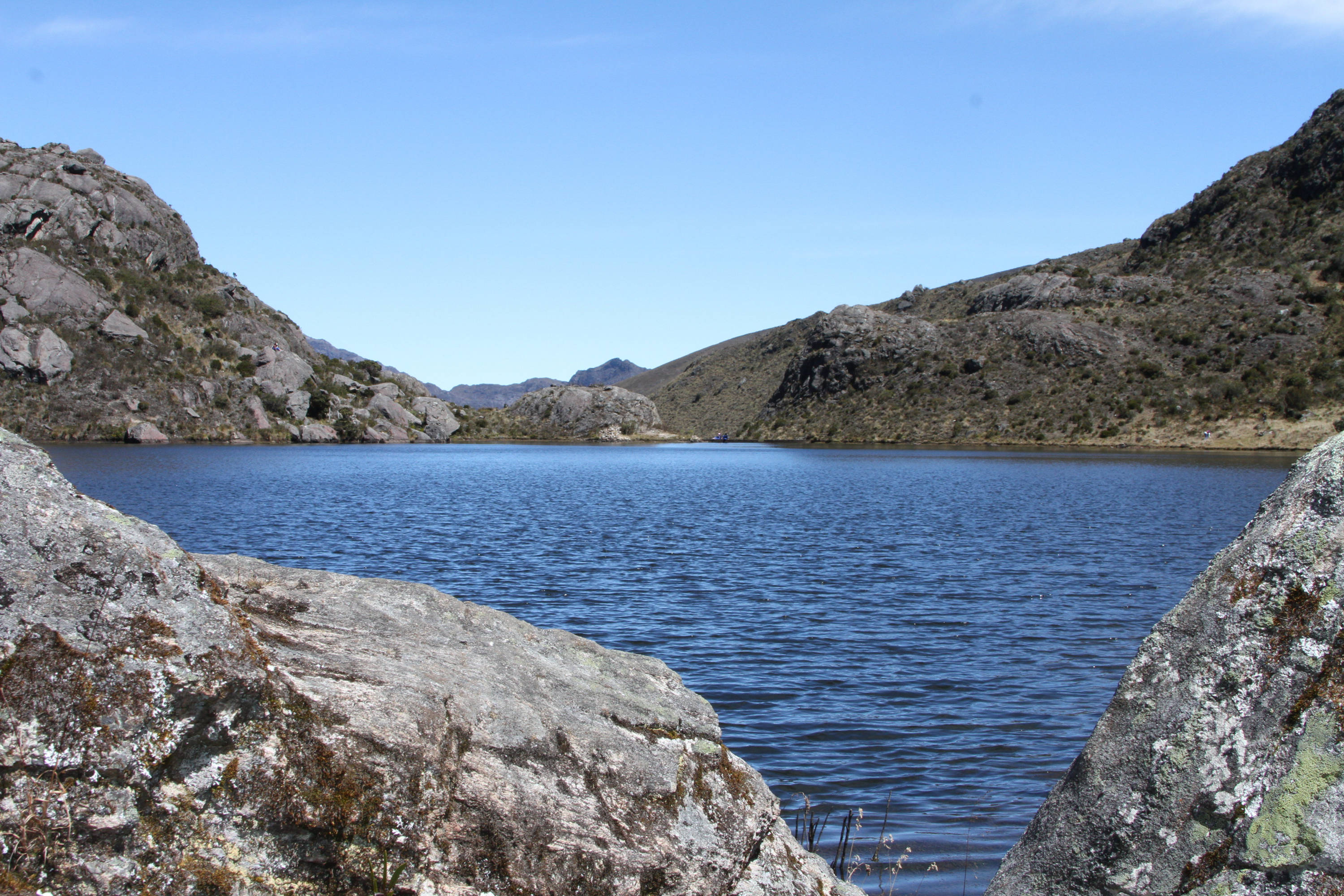
The first ZRT was declared in Santurbán earlier this year. Photo: Édgar Osma
The government has insisted on its interest in creating temporary nature reserves in strategic ecosystems that are currently unprotected, to review whether mining activities should be carried out there. In this regard, in an interview with EL TIEMPO, Minister Estrada asserted that this decision "responds to a popular mandate" and has the support of the communities affected.
The measure covers six municipalities—Jericó, Támesis, Valparaíso, Santa Bárbara, Fredonia, and La Pintada—and protects 37,000 hectares of watersheds, wetlands, and critical biodiversity areas that are home to endemic and endangered species. The official also insisted that this policy seeks to organize the territory around water and the environmental rights of communities, and that it is not designed to affect the gold mining company AngloGold Ashanti, which operates in the region. She also emphasized that mining is not the dominant activity in the area, where more than 85% of the land is used for agriculture, forestry, or tourism.
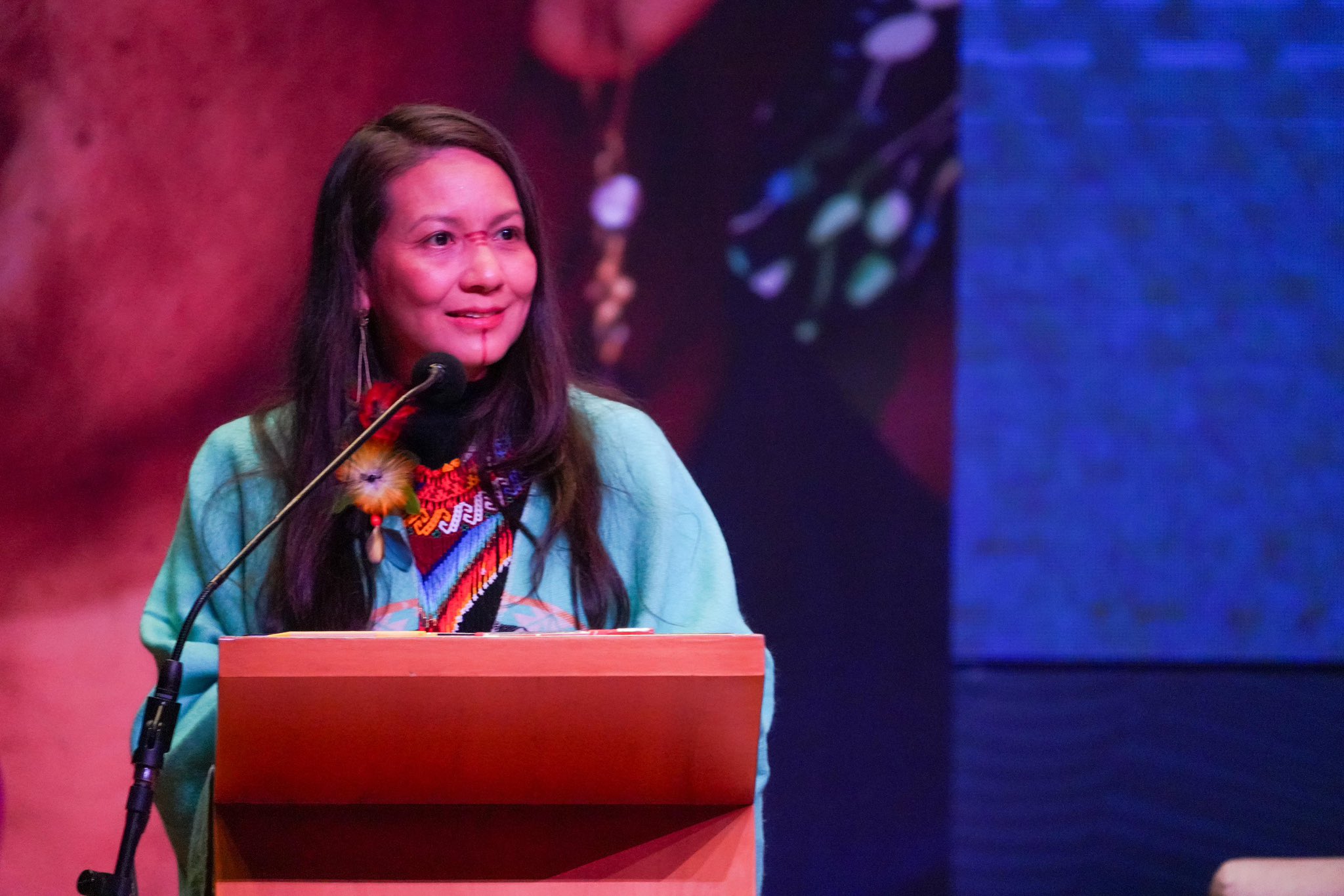
Environment Minister Lena Estrada Añokazi. Photo: Ministry of the Environment
Two of the priorities of our government, led by President Gustavo Petro, are territorial planning around water and environmental justice. We defined this in our Government Plan, and today we are fulfilling our promise to the communities of southwestern Antioquia with the declaration of a Temporary Reserve Zone that will safeguard the region's strategic ecosystems, protect the tropical dry forest, and, above all, guarantee access to water for more than 28,000 people.
This declaration responds to a popular mandate, the result of peasant struggles against a socio-environmental conflict over access to water, supported through the popular action known as the Mining Window, which recognized the risks that certain extractive activities pose to the region's ecosystems.
Today, the rural communities that have fought for their land are receiving a response based on environmental justice: with this decision, we prioritize the right to water, life, and ecological balance over particular economic interests.
This measure applies the precautionary principle, suspending mining activities for three years while a detailed study of the area's water resources is conducted. If such activities are found to affect water sustainability, they will not be permitted to continue in the territory.
With this declaration, we are protecting 37,000 hectares in the municipalities of Jericó, Támesis, Valparaíso, Santa Bárbara, Fredonia, and La Pintada, where water sources, aquifers, and wetlands originate, as well as 22,118 hectares of tropical dry forest, habitat for 168 endemic species and 33 endangered fauna species.
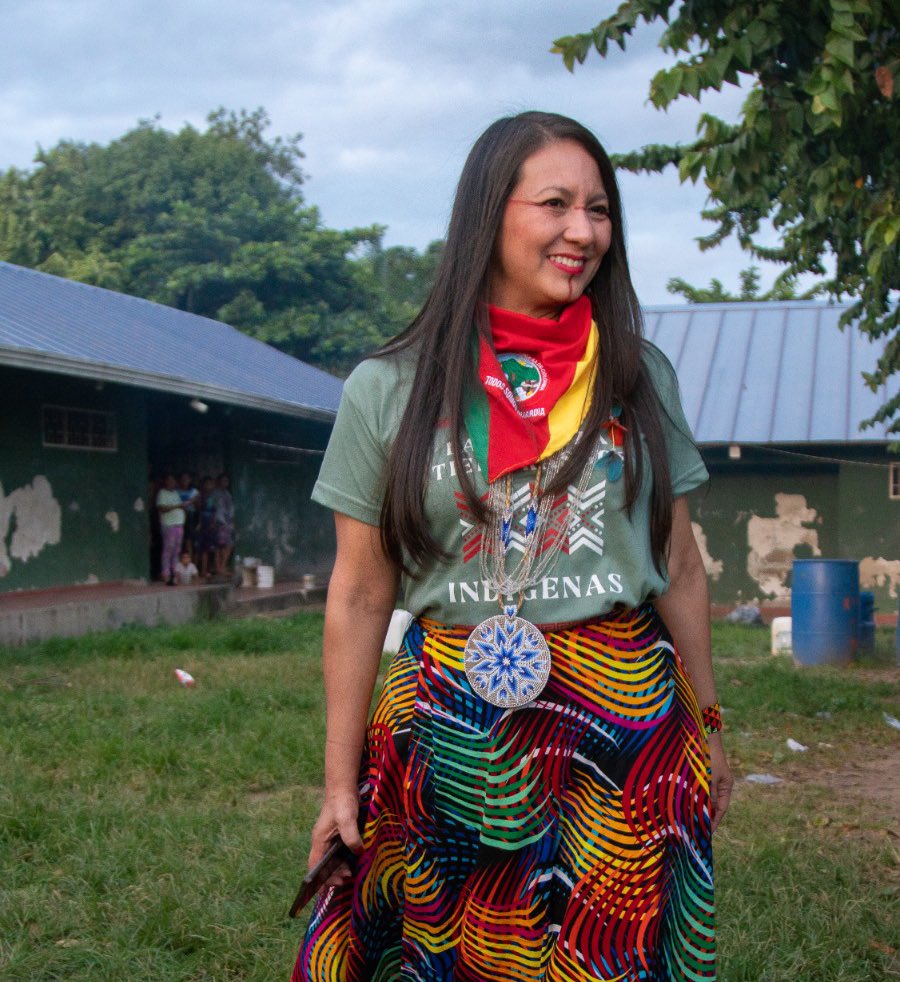
Environment Minister Lena Estrada Añokazi. Photo: Ministry of the Environment
I want to be clear: the purpose of this measure is to organize the territory around water, prioritizing the protection of fragile ecosystems and strategic water areas, based on the political constitution, the law, and our government plan.
It is also about applying planning and sustainability criteria that ensure that mining does not take place in territories where its impact puts strategic ecosystems or community rights at risk. What would be the future of a territory and its inhabitants where mining activity destroys and contaminates water, destroys the social fabric, dehumanizes, generates human rights violations, and disrespects Mother Earth?
The reserve areas we have declared respond to technical and socio-environmental principles that apply the precautionary principle while conducting rigorous studies on the impact of certain activities on the water supply.
I want to be clear: the purpose of this measure is to organize the territory around water, prioritizing the protection of fragile ecosystems.
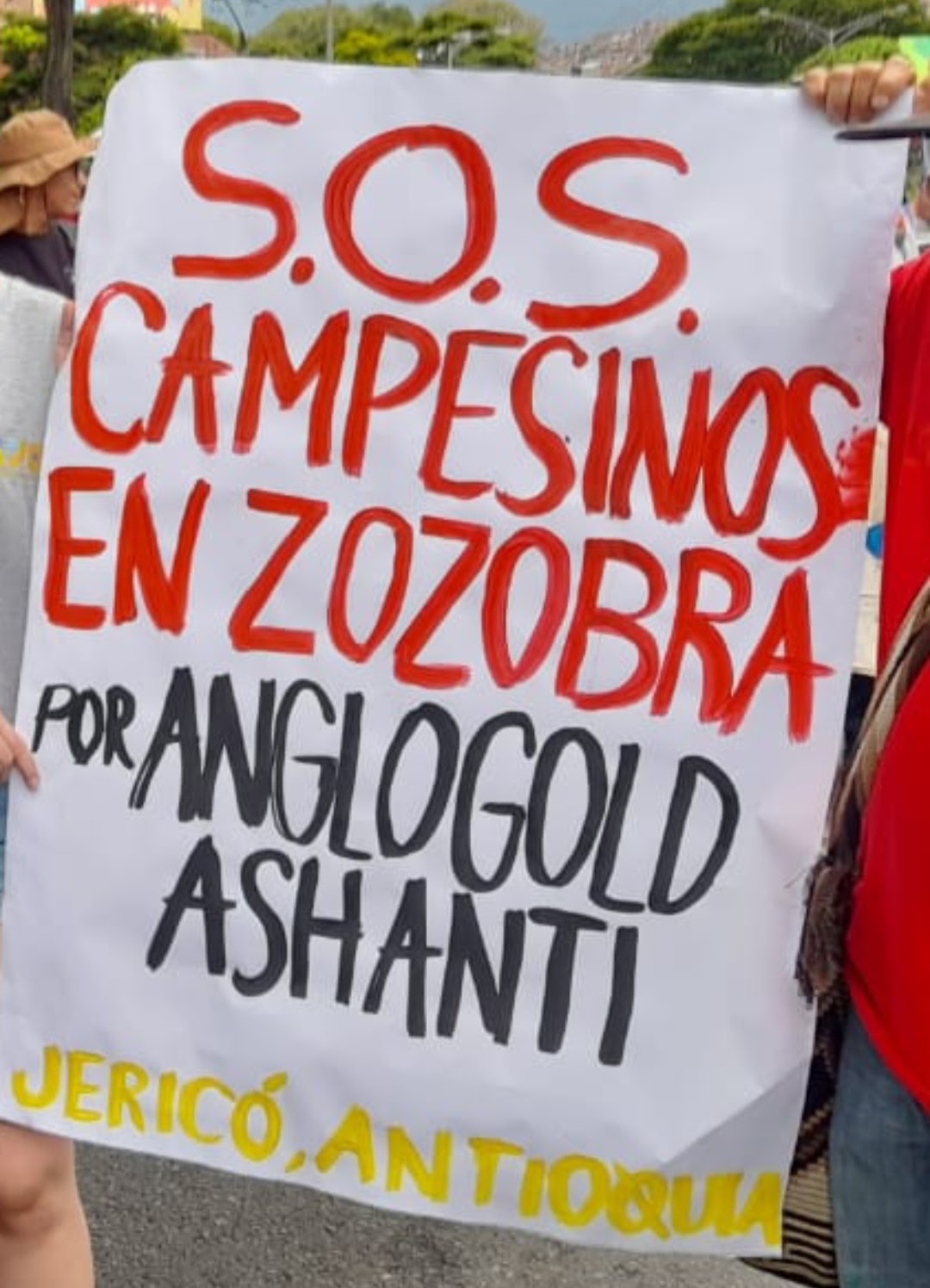
Mining creates divisions in the Southwest Photo: Courtesy
The peasant communities and social leaders of the Southwest support the measure because, as I mentioned, they were the ones who mandated it, and an essential principle of the Indigenous peoples where I come from is: those of us who hold responsibilities of power must command by obeying. So, rather than supporting it, they have built and achieved it through their social struggle, even facing constant threats and putting their safety at risk. Once again, this measure is a response to the mobilization and demands of the region's social movements.
Furthermore, we have the support of the municipalities already covered by the measure. We even have other territories, such as Caramanta, that have requested to be included, and others, such as Valparaíso, that have requested that a larger area of their zone be included.
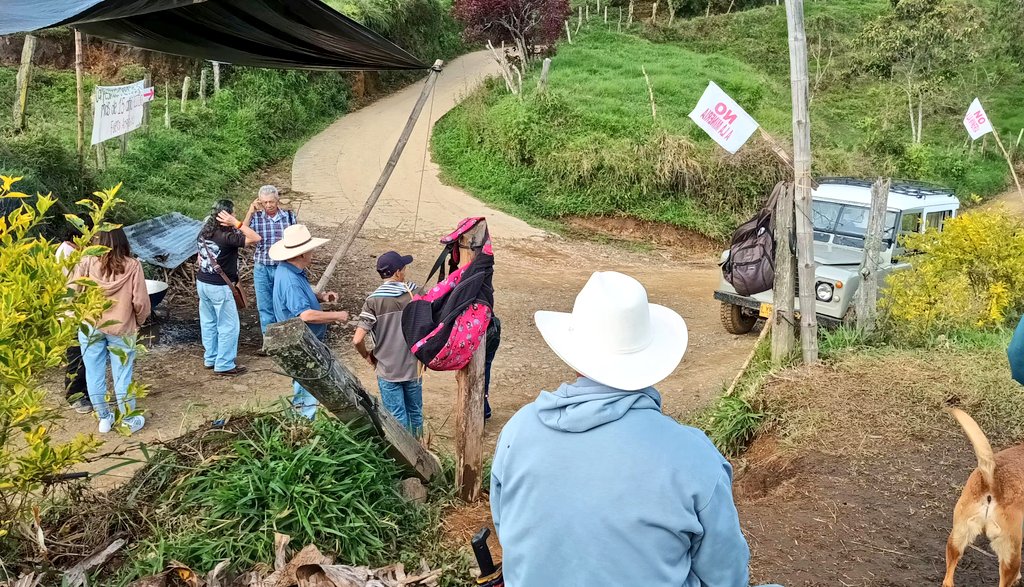
Mining creates divisions in the Southwest Photo: Courtesy
It is important to note that mining is not the dominant activity in this subregion. According to data from the IGAC (National Institute of Agricultural and Forestry) and the Ministry of Agriculture, more than 85% of the area is used for agriculture and forestry, and it has historically been a coffee-producing region, with complementary activities such as livestock farming, forestry, and cultural and ecological tourism.
What remains suspended are the 48 exploration and exploitation license applications that were pending in the area, as well as any new exploration and exploitation applications. This means that these are not ongoing projects or activities that currently generate employment in the area. For this reason, it is important to note that the community of Southwestern Antioquia not only maintains its current economic options, but also opens up new opportunities by protecting its territory and strengthening its agricultural vocation.
Is this a tailor-made resolution specifically to prevent AngloGold Ashanti from further mining in the area? This is a measure to benefit the communities, to protect the region from irreversible damage to its ecosystems. We're not stopping companies; we're protecting the water and the territory of Southwestern Antioquia.
Furthermore, this is also a response to compliance with the Council of State ruling ordering the Ministry of the Environment to declare reserve zones to prevent mining concessions without environmental protection compatibility studies. In other words, it mandates that, based on scientific studies, the State must, in the medium term, definitively define where mining can and cannot be carried out, in order to safeguard strategic ecosystems and renewable natural resources for this and future generations.
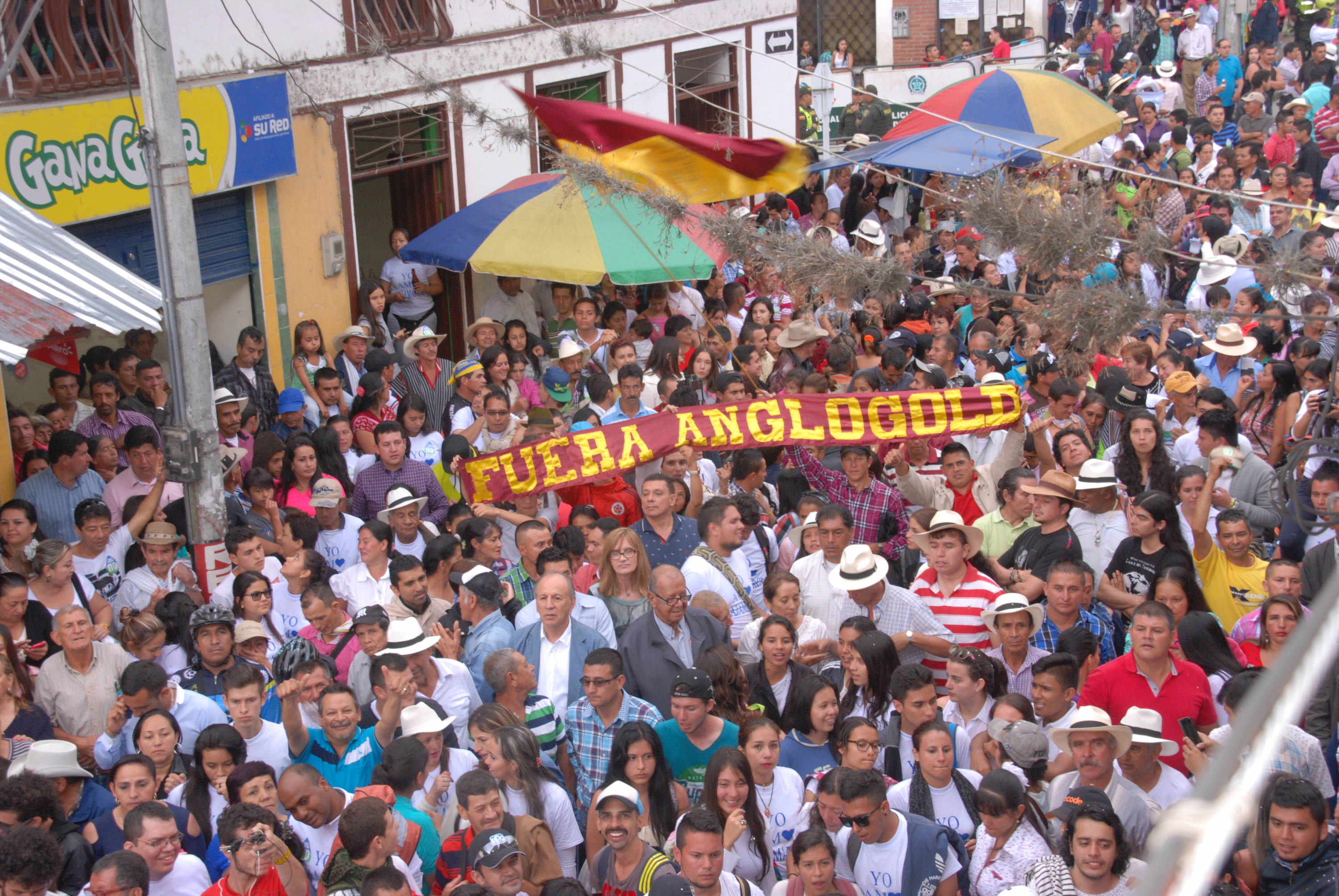
AngloGold Ashanti has been challenged by the community. Photo: Juan Carlos Escobar
Environment and Health Journalist
eltiempo



